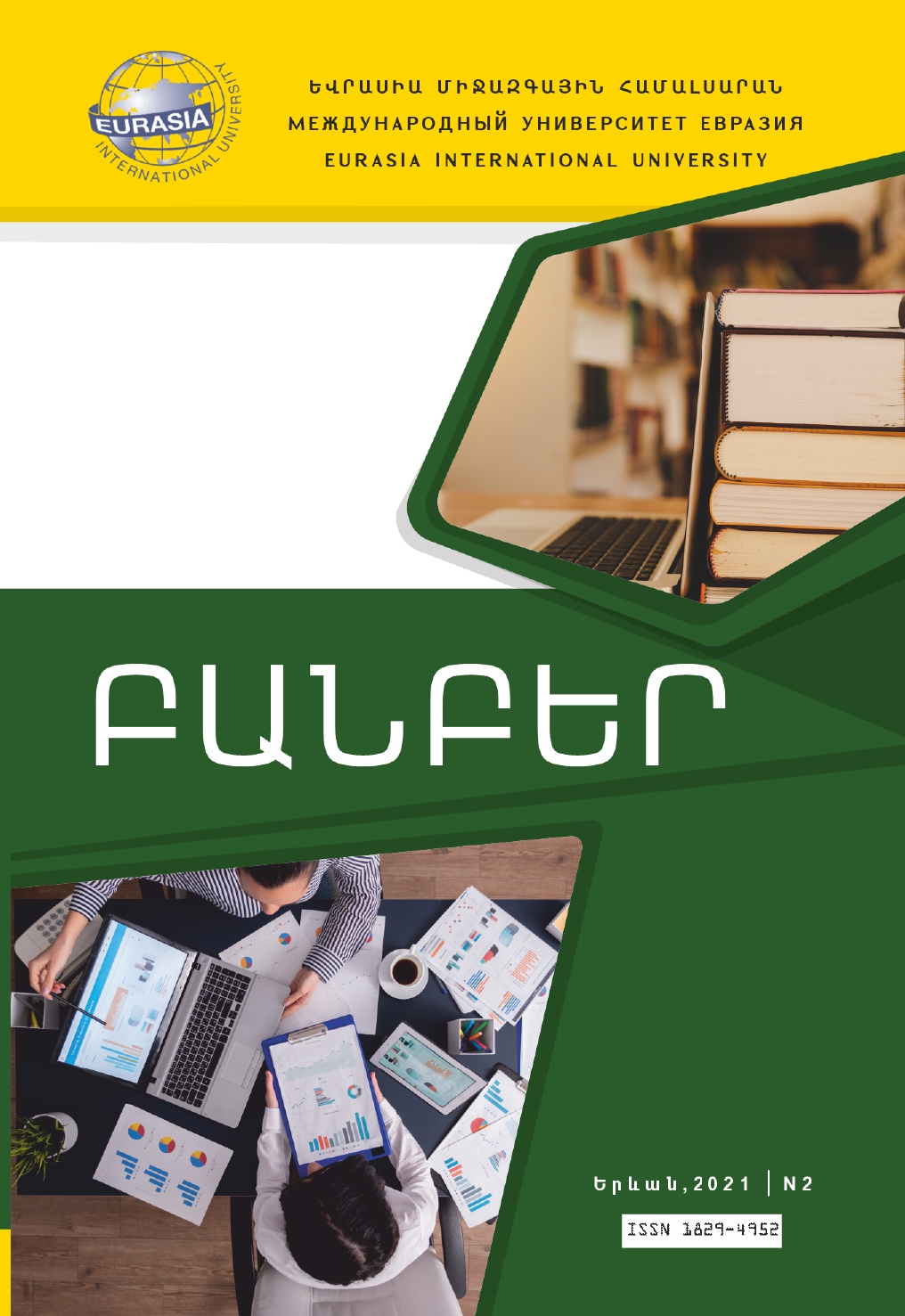TOURISM AS A FACTOR OF ECONOMIC GROWTH: AN EMPIRICAL ANALYSIS FOR ARMENIA
DOI:
https://doi.org/10.53614/18294952-2021.2-113Keywords:
tourism development, economic growth, empirical analysis, Tourism-Led Growth Hypothesis, Unit root test, cointegration, Granger causality.Abstract
In recent years, the question of whether tourism contributes to long-run economic growth has been widely discussed in the touristic literature, but the results of empirical research remain conflicting. The Tourism-led growth hypothesis (TLGH) has been introduced, according to which international tourism is a strategic factor of economic growth in the long run. The COVID-19 pandemic reaffirmed the need for countries to test this hypothesis empirically as most countries recognize the crucial role of tourism in economic recovery. If the TLGH is valid, more resources should be allocated to the tourism industry than it was before.
This study investigates the causal relations between tourism development (TD) and economic growth for the Armenian economy by using econometric methodology of unit root testing, cointegration analysis, Granger causality testing and Vector Autoregression (VAR) modeling. The results of a cointegration test indicate that there is no long-run equilibrium relationship between real GDP and real tourism receipts. Our findings have also empirically demonstrated that Tourism-Led Growth Hypothesis (TLGH) is not held in the case of Armenia. The outcomes of Granger causality test imply a bilateral causal relationship between tourism development and economic growth. TD-economic growth short-run interactions were estimated using the VAR model.




